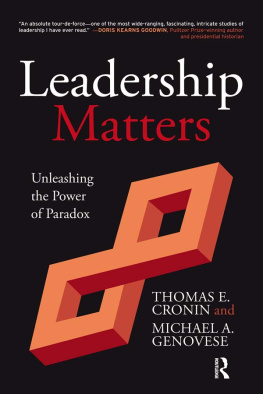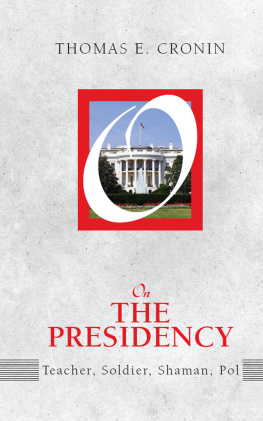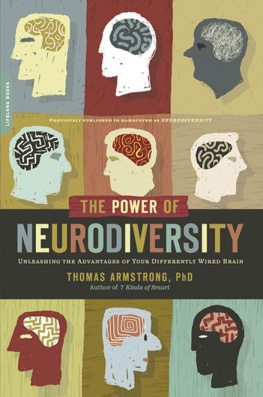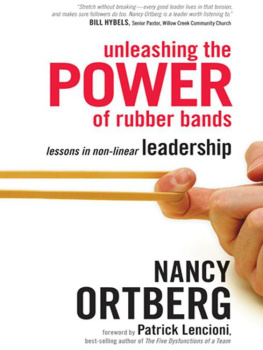PRAISE FOR LEADERSHIP MATTERS
Cronin and Genovese have written a compelling and original book. It is terrifica real addition to the leadership canon.
Warren Bennis, Marshall School of Business, University of Southern California
Leadership Matters is a highly sophisticated, deeply probing, and remarkably comprehensive treatment of this dynamic and crucial subject.
James MacGregor Burns, Williams College (Emeritus), Pulitzer Prizewinning political scientist, historian, and biographer
This book offers unique insights into the field of leadership with stunning examples about what historical and popular leaders can teach us. Cronin and Genovese give us an entirely different perspective on the field. This is a must-read for anyone interested in leadership!
Nicole Cundiff, Director of the Northern Leadership Center, University of AlaskaFairbanks
This book is an absolute tour-de-forceone of the most wide-ranging, fascinating, intricate studies of leadership I have ever read.
Doris Kearns Goodwin, Pulitzer Prizewinning author and presidential historian
Cronin and Genovese present leadership as the most baffling of the performing arts. They unpack the paradoxes of leadership, provide memorable illustrations, and include nuggets of wisdom for anyone interested in learning more about this complex human activity.
Nannerl O. Keohane, President Emeritus of Wellesley College and Duke University and Lawrence S. Rockefeller Distinguished Visiting Professor of Public Affairs and the University Center for Human Values at Princeton University
This is a terrific bookdestined to become a classic.
James OToole, former Executive Vice President, Aspen Institute
Leadership Matters is the book my course on leadership has been waiting fora volume that intelligently embraces, rather than avoids, the paradoxes inherent in the subject.
Norman W. Provizer, Leadership Scholar, Director of the Golda Meir Center, Metropolitan State UniversityDenver
A unique, well-researched, and well-written book on leadership that has been needed for a long time. This book is the one I have been thinking about writing. Now I wont have to, because Cronin and Genovese have already done it very well.
William E. Rosenbach, former Chair of Leadership Programs, U.S. Air Force Academy, and Gettysburg College
Leadership Matters is simply terrific. This is a superb bookit will have an important place in the literature and in the classroom, and might well become a classic.
J. Thomas Wren, Jepson School of Leadership, University of Richmond
LEADERSHIP MATTERS
To Tania and Gabrielalove matters!
LEADERSHIP MATTERS
UNLEASHING THE POWER OF PARADOX
THOMAS E. CRONIN
MICHAEL A. GENOVESE
First published 2012 by Paradigm Publishers
Published 2016 by Routledge
2 Park Square, Milton Park, Abingdon, Oxon OX14 4RN
711 Third Avenue, New York, NY 10017, USA
Routledge is an imprint of the Taylor & Francis Group, an informa business
Copyright 2012 Thomas E. Cronin and Michael A. Genovese
All rights reserved. No part of this book may be reprinted or reproduced or utilised in any form or by any electronic, mechanical, or other means, now known or hereafter invented, including photocopying and recording, or in any information storage or retrieval system, without permission in writing from the publishers.
Notice:
Product or corporate names may be trademarks or registered trademarks, and are used only for identification and explanation without intent to infringe.
Library of Congress Cataloging-in-Publication Data
Cronin, Thomas E.
Leadership matters: unleashing the power of paradox / Thomas E. Cronin, Michael
A. Genovese.
p. cm.
Includes bibliographical references and index.
ISBN 978-1-61205-142-0 (hardcover : alk. paper)
ISBN 978-1-61205-143-7 (pbk. : alk. paper)
1. Political leadership. 2. Leadership. I. Genovese, Michael A. II. Title.
JC330.3.C76 2012
303.34dc23
Designed and Typeset by Straight Creek Bookmakers.
ISBN 13: 978-1-61205-142-0 (hbk)
ISBN 13: 978-1-61205-143-7 (pbk)
Leadership is about making things happen that otherwise might not happen. It is a process of getting people to work together to achieve mutually shared aspirations.
Leadership invariably involves an infusion of vision, purpose, and energy into an enterprise. It entails mobilizing both people and resources in order to achieve results.
Leaders have been responsible for liberating breakthroughs in public affairs, commerce, and the arts. But they have been responsible as well for failed states, failed enterprises, extravagant follies, and horrible crimes. For better or for worse, leaders and leadership matter.
Still, leadership for most people is a hazy and confusing abstraction. People wonder whether leaders are born or made, and whether leadership is a result of individual agency or social context. Did Martin Luther King Jr., for example, serve as a leader in creating the civil rights movement, or was he largely shaped by that movement? And what role do followers play? How much do followers guide their leaders? Can leaders take us where we dont want to go?
While most leadership books emphasize specific rules for effective leadership, we see a more fluid and contradictory leadership universe, where rules only occasionally apply, and how-to-do-it prescriptions can obscure rather than enlighten our understanding of leadership.
Our book challenges common myths about leadership, such as these:
Leaders are born, not made.
Leadership is a rare and uncommon talent.
Leaders are necessarily charismatic.
Leadership is found only at the top of an organization.
Office holders are necessarily leaders.
Organizational or group members are either leaders or followers.
Leaders are smarter and more creative than most of us.
Power is the dominant currency of leadership.
We see leadership as a series of dilemmas, choices, and paradoxes that challenge would-be leaders in every sector. Clashing expectations and demands, and unexpected occurrences must be regularly confronted and dealt with.
Four basic premises guide this book. First, leadership is a process that encourages the accomplishment of group purposes. Second, the key and enduring tasks of a leader are to learn, build morale, motivate, educate, and create human communities. Third, leaders not only need followers, their very legitimacy is granted by followers. Leadership always involves followers as well as leaders and context. Finally, we contend that much of what we call leadership can be learned. There are some things, to be sure, that cant be taught. Much indeed is learned in the trenches, in the crucible of challenges that are unexpected or unprecedented.















